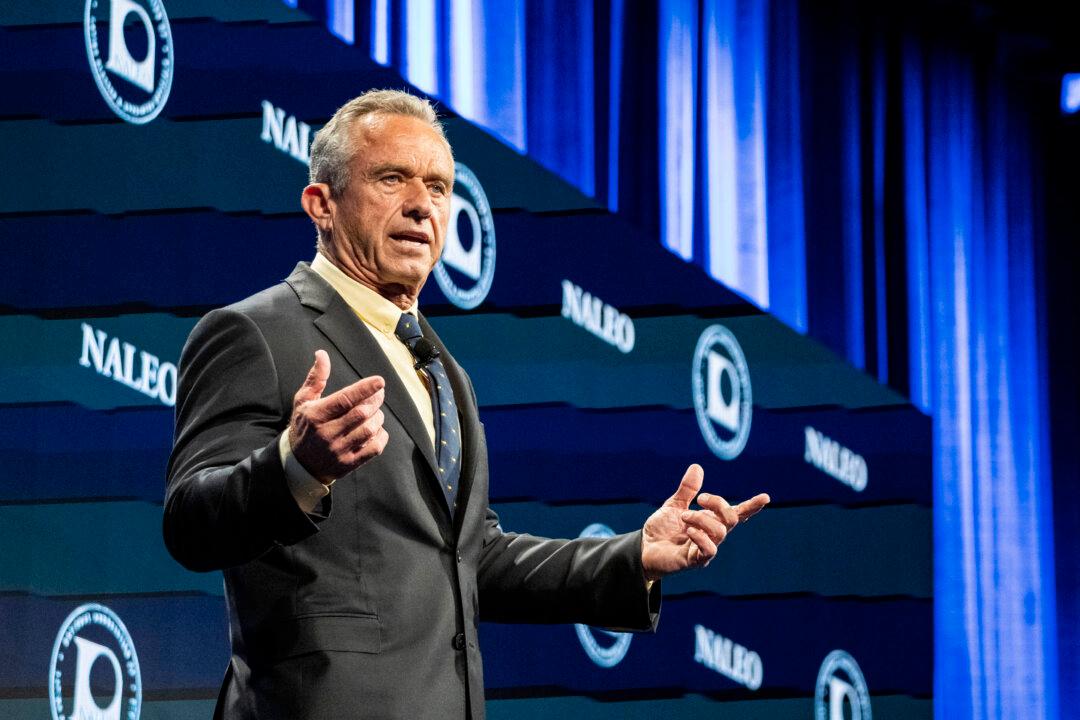Greeted by a sizable crowd chanting “Bobby, Bobby, Bobby” at the Iowa State Fair on Aug. 12, Democratic presidential candidate Robert F. Kennedy Jr. said that he would support a national ban on abortion after the first three months of pregnancy if elected.
The next morning, a campaign spokesperson said, “Mr. Kennedy misunderstood a question posed to him by an NBC reporter in a crowded, noisy exhibit hall at the Iowa State Fair.





